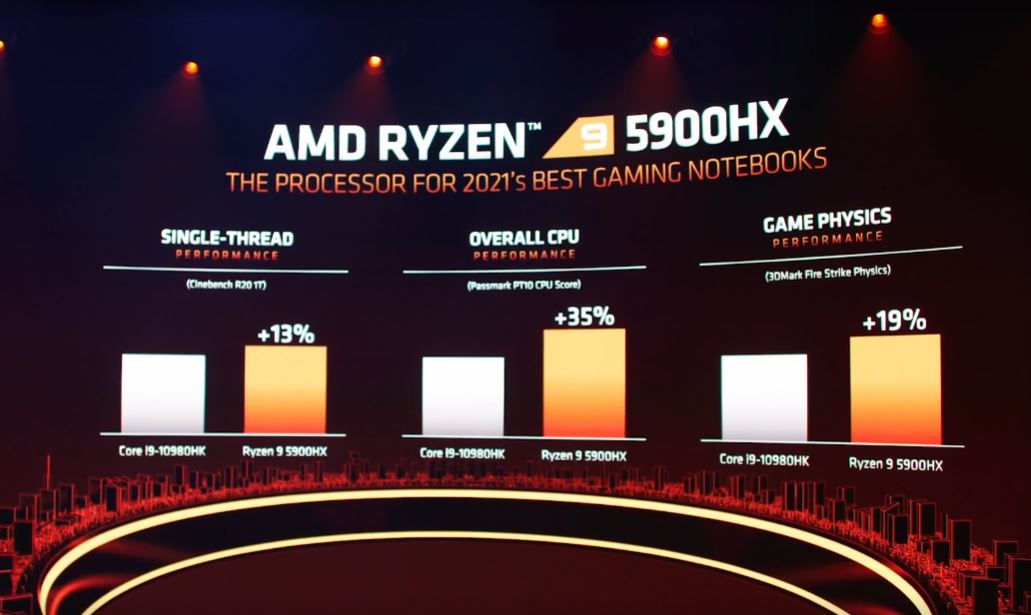After Intel kicked things off on Day 1 of CES 2021, AMD has punched back with its own impressive processor launch, all centering on its Ryzen 5000 mobile chips. They’ve long been rumored, especially since the debut of their desktop counterparts in late 2020. But today, they’re official.
AMD CEO Lisa Su took to the stage and announced theinitial Ryzen 5000 chips in the lineup, all based on the Zen 3 core architecture. The first is the Ryzen 7 5800U, which fits eight cores and 16 threads into a 15-watt power envelope for thin-and-light laptops. Su reminded the audience that it’s still the only x86 system with eight cores in a 15-watt TDP.

Su also focused on battery life, promising that the Ryzen 7 5800U would last for 17.5 hours on a single charge in general usage and up to 21 hours in video playback.
AMD also announced a couple of new 45-watt gaming or high-performance chips in the Ryzen 9 HX series, which is new to Ryzen 5000. They include the Ryzen 9 5900HX and the Ryzen 9 5980HX. While both have eight cores and 16 threads, the Ryzen 9 5980HX has a higher top boost speed of up to 4.8GHz.

AMD compared these unlocked chips to Intel’s Core i9-10980HK, where it shows a double-digit competitive edge percentagewise. It’s not only in multi-core performance either, which has always been Ryzen’s strength. That higher clock speed is even letting AMD taking the lead in single-core performance in Cinebench R20, which is impressive.
AMD also showed the Ryzen 5900HX Radeon integrated graphics beating Intel’s offering by 19% in the Fire Strike Physics benchmark.
AMD didn’t go in-depth on these new processors, nor did it provide any information about lower-end processors such as Ryzen 5.
Su promised up to 150 laptop designs using Ryzen 5000, which is up from 50 implementations of Ryzen 4000 in 2020. That growth is telling, and shows just how far AMD has come in just a couple of years.
These mobile processors build on the intense momentum being generated by AMD. The company announced Ryzen 4000 mobile chips at CES last year, and followed that up with its Ryzen 5000 desktop chips in late 2020. They’ve been sold out ever since, keeping the demand high for AMD’s high-performance chips well into 2021.




